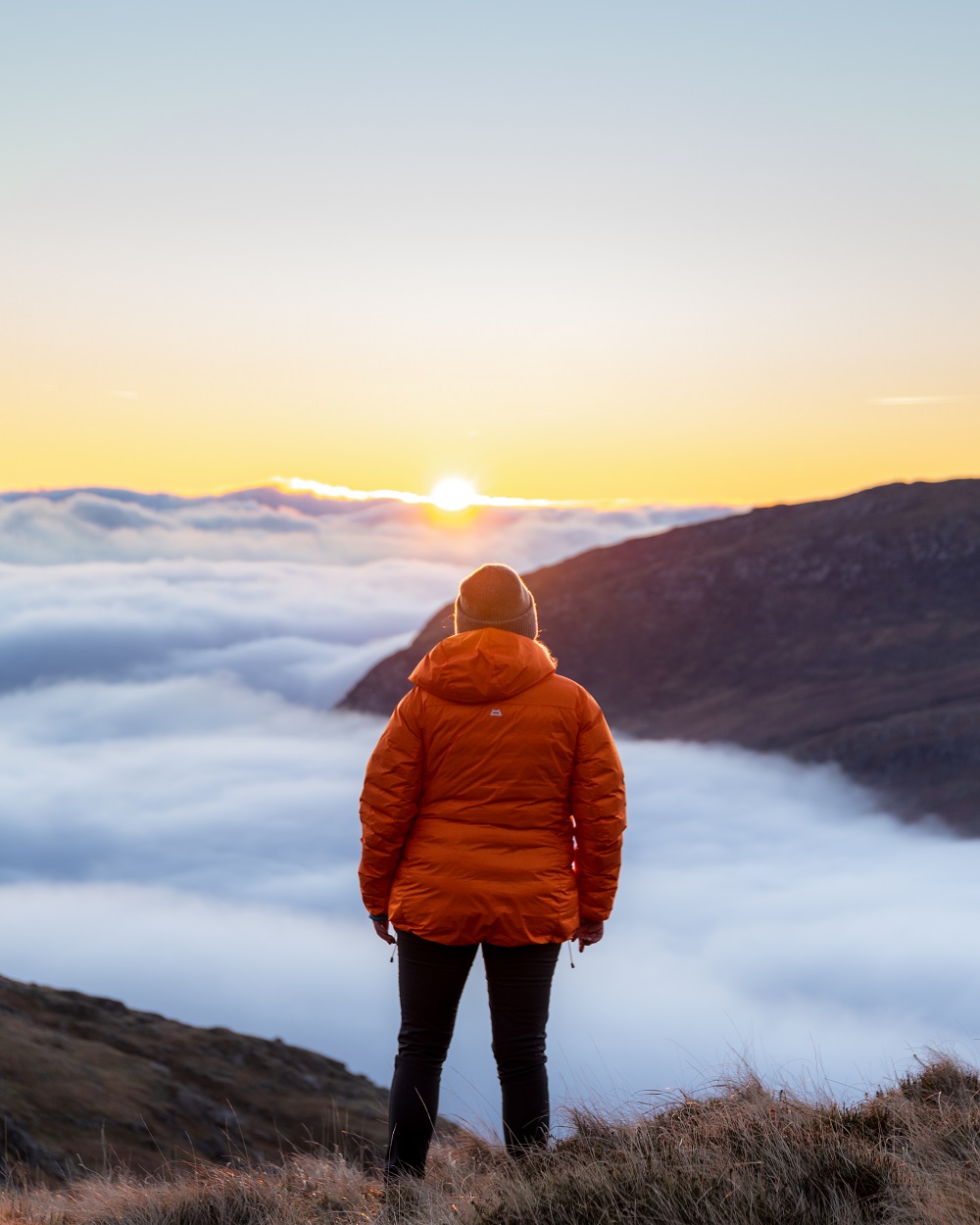
There are plenty of reasons to get into hiking. Whether it’s for the health benefits from all that lovely exercise or the gorgeous views you can catch on your ascent, there’s a little something for everyone when it comes to getting your hike on. One question we’re asked a fair bit, though, is what are some of your top tips when it comes to hiking for beginners? Here are some of the most important things we would recommend for any newbie…
Be trail-smart
If this is your very first hike, you might want to test just how fit you are by starting with uphill walking and see how long it takes you to get tired, and pick a hike to match that. And if you are just starting out, but want to aim high and tackle a mountain summit for example, choose the least difficult route and you can gauge from there how ready you are for more of a challenge next time.
Pacing is also key – hiking is most definitely not a race and if you try to speed through it you could tire yourself out quickly and make the whole day a real slog. Don’t be too much of a slowpoke though, set yourself a goal time and try to stick to it!
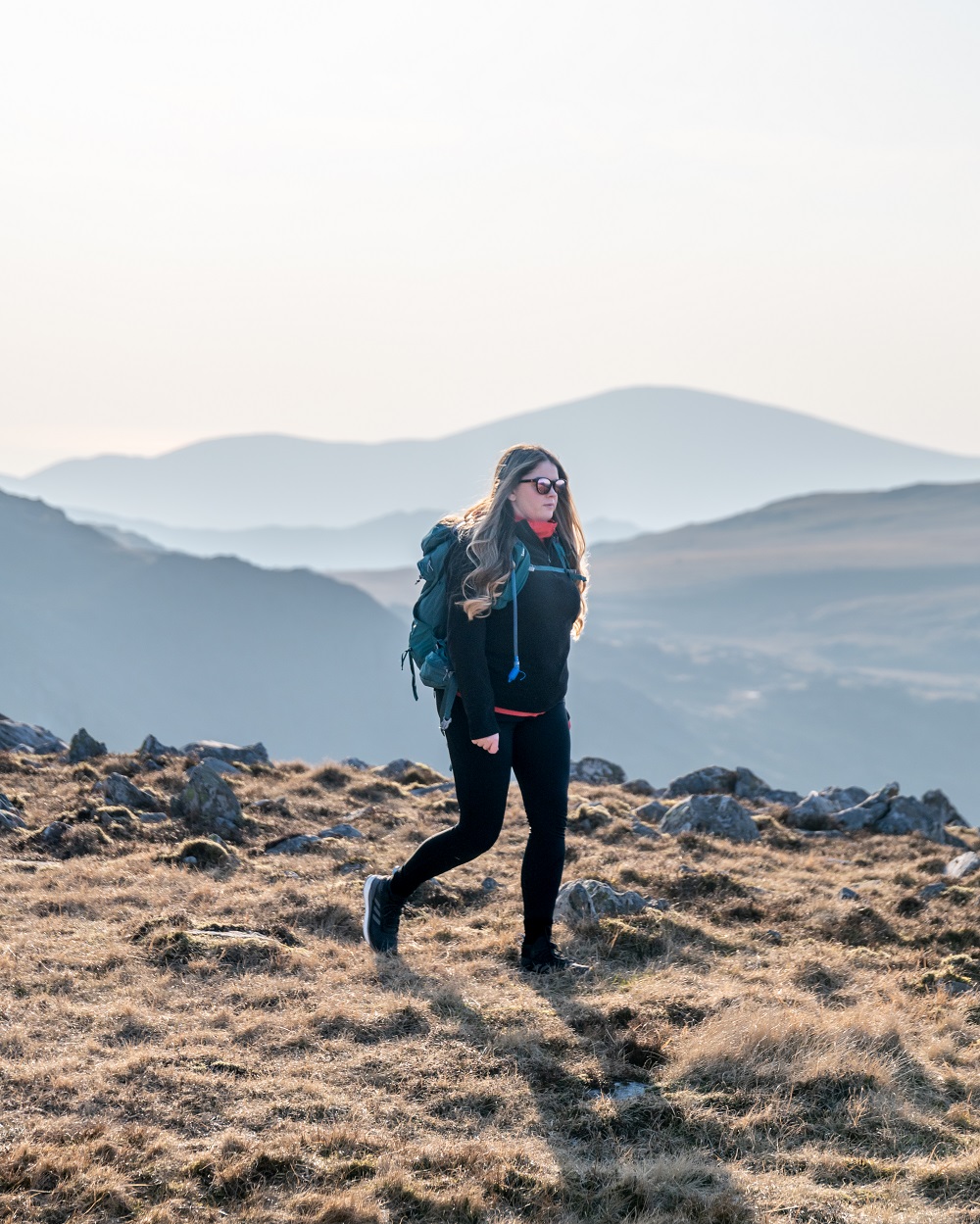
Do your research
Hiking isn’t the walk in the park you may think it is. Often you will be presented with different hazards, especially with the more difficult trails, so it’s important that you brush-up on what you can expect on your trip. Youtube and Instagram searches are godsends when it comes to this stuff, as plenty of helpful hikers will have videos that show you what to expect.
Here are some YouTube channels we recommend, either to find ideas for your adventure or to watch a first hand account of the route you’ve chosen and familiarise yourself with the potential hazards:
Another boring, but still important, bit of research is to look into is the start point facilities. Will there be parking, if so, is it free? Are toilets available? BBQ facilities if you want to do a bit of cooking after you’re done? Guidelines and what is and isn’t permitted. You’d be surprised at the amount available at these places so it’s best to look into it before you go so you’re fully prepared.
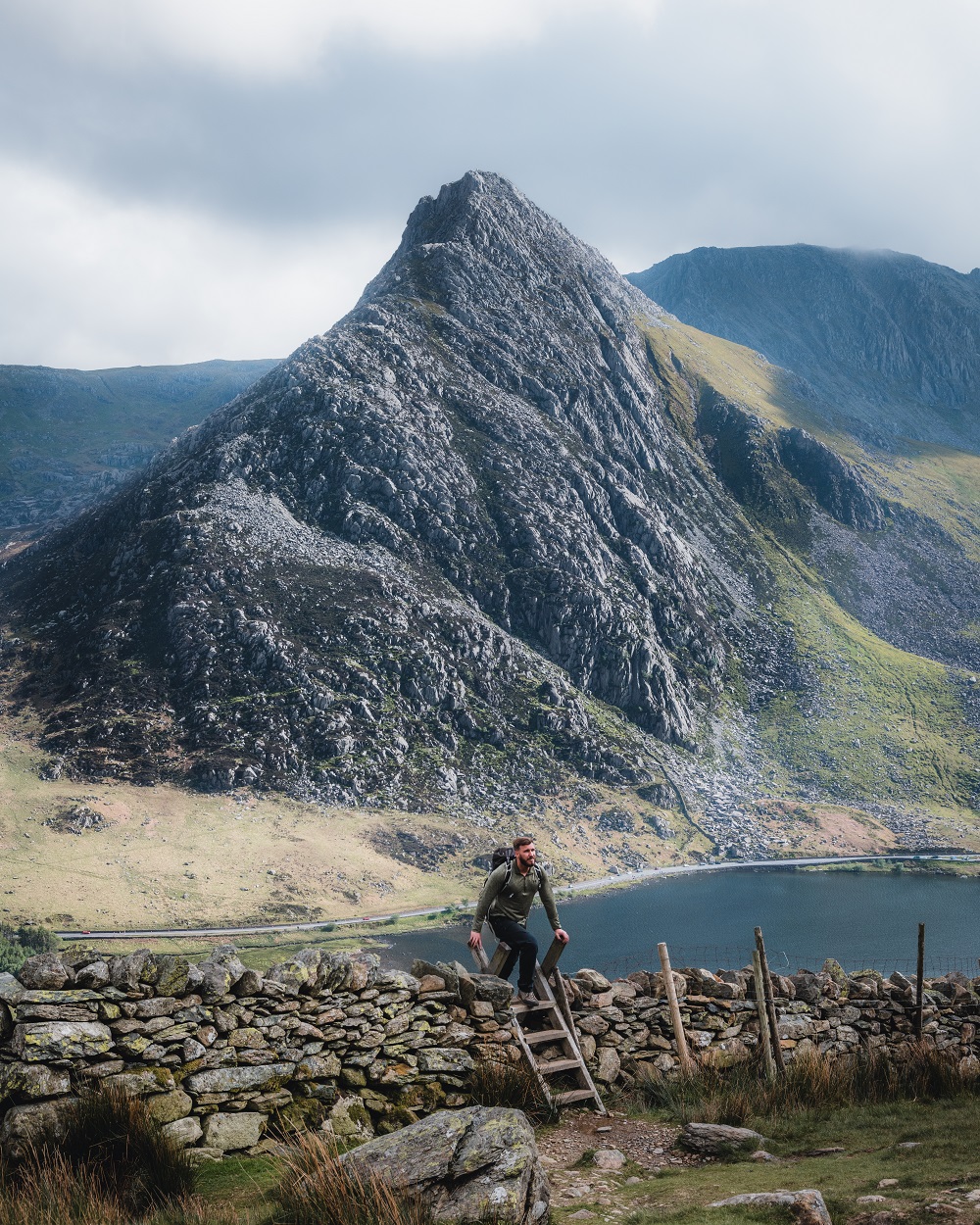
Dress for success
If you go on a hike and you don’t dress for the occasion, you’re going to have a bad time. I saw someone post something to Facebook about their feet being cut to ribbons because they tried to hike in a pair of flip-flops and we hear stories all the time about people getting injured trying to hike a mountain summit in standard trainers. Don’t let this be you.
Walking Boots
First on your to do list should be a decent pair of walking boots, they’re cheap enough to get and worth their weight in gold.
Layer up
Make sure you layer up, after all, you can always take them off – but if you don’t bring them, you can’t put them on.
Waterproofs
The weather can always come into play when you least expect it, so dressing appropriately for it is key. Invest in some waterproof clothing or even just a rain resistant jacket, you will thank us when you’re facing a downpour or damp conditions at high altitudes.
Change of clothes
Last but not least, a change of clothes is always a welcome addition for hiking in the rain, especially if you are facing a long drive home in wet clothing – even just a dry pair of socks and a warm hoodie will make all the difference! Also, when you’re drenched with rain/sweat you can start to chafe up, moisture wicking clothing can usually prevent this, though.
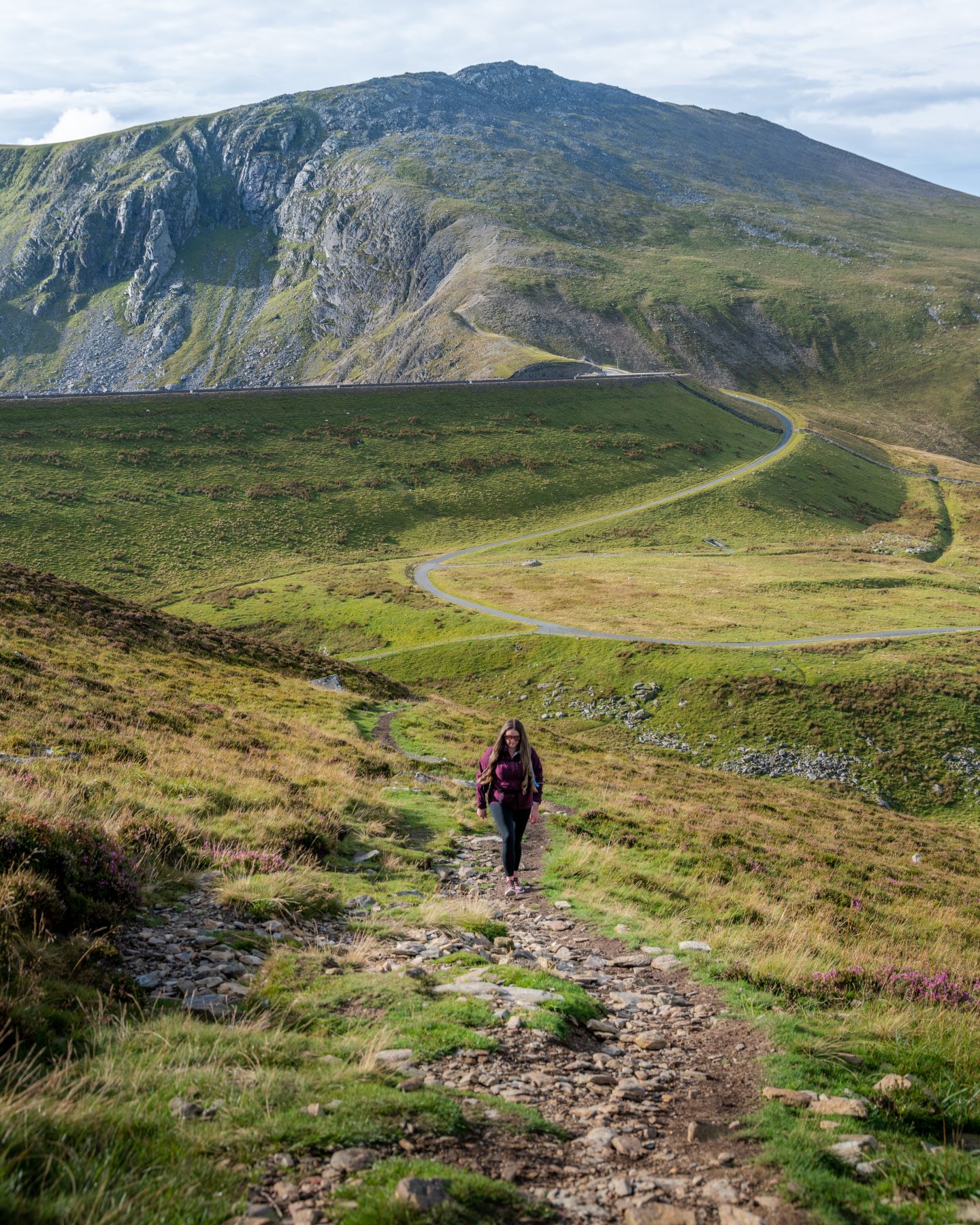
Put thought into your packing
One mistake beginner’s will always make is either taking too much or taking too little in their backpack. Too little and you can be caught cold, and often can put yourself in real danger – too much and lugging around all that extra weight can be a real pain!
Only pack what’s really necessary. That means a good amount of water to stay hydrated throughout, some snacks that are high in nutritional value and some spare clothes – maybe even a portable charger just incase your phone runs out of charge.
If you’re aiming for a summit, hiking in the winter months with less daylight hours or even just a route that’s more difficult to navigate, we recommend taking some essential safety gear;
Head Torch (in case you end up stuck in the dark)
Battery pack (electronics lose battery a lot quicker in cold conditions)
High carbohydrate snacks for energy
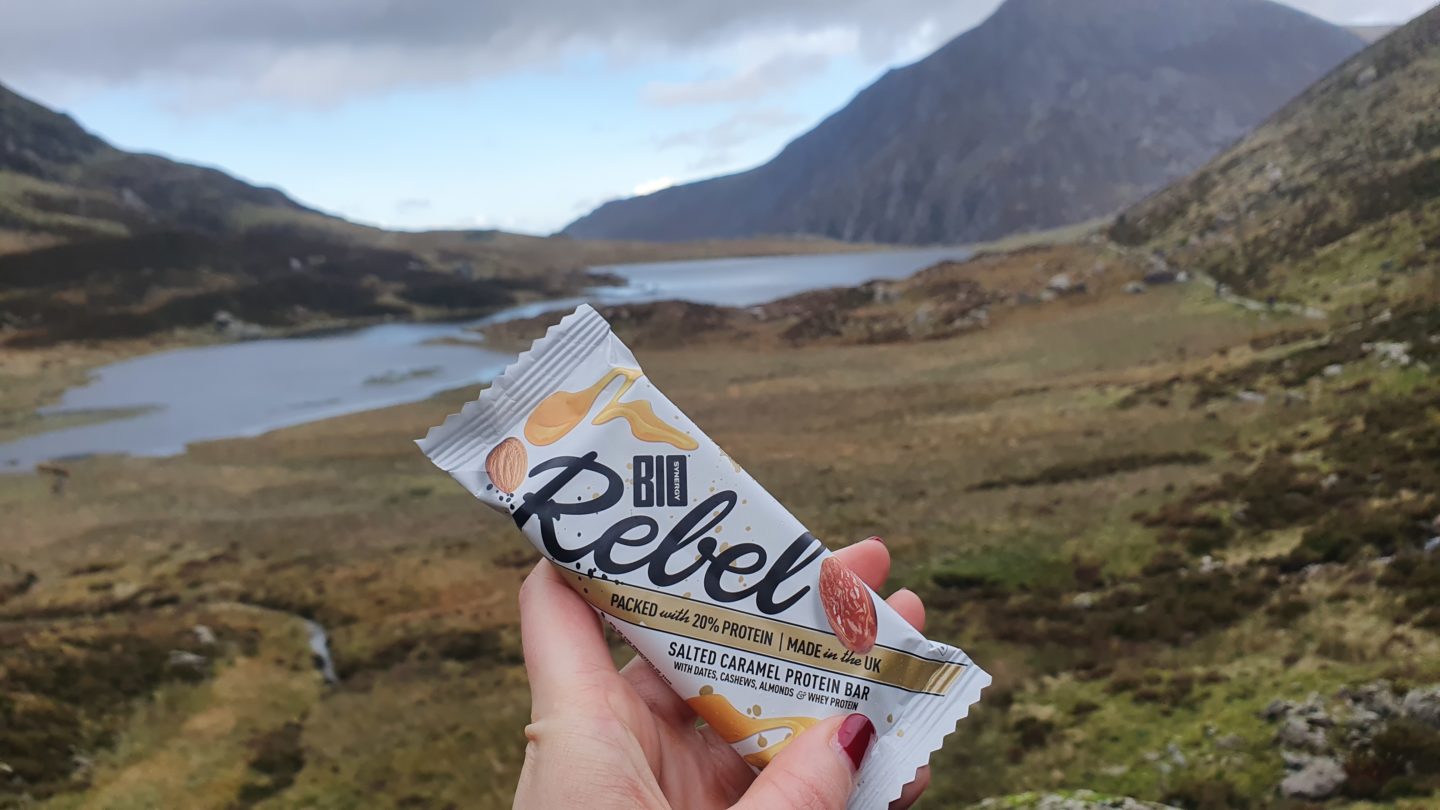
Prepare the night before
Preparation is key to any successful hiking trip, getting everything ready the night before means you won’t forget anything in the morning and land yourself in a tricky situation.
What’s you start time?
Figure out how long you want to spend on your hike and make sure you know how long the average time is for the route you have chosen. Check that there are no road closures on your route, if driving there in the morning. Allow yourself an extra hour or even two, just in case you get lost on the trail or if anything goes wrong.
Sunset time in the area?
It’s important to check what time the sun rises and sets in the exact area where you’re going, and if aiming for a mountain peak, check the sunset time on the summit (mountain-forecast.com is usually the most accurate) – nobody wants to be caught on a hike when it gets dark as that’s when things can start to get dangerous.
Let someone know your plans!
Let someone know that you’re out on the hike and where you’re going, even if you’re going with friends. It’s vitally important in case you go missing and someone can notice your absence – better safe than sorry!
Carb load (go nuts!)
Last but not least, you want to eat a really carby meal the night before you set off, that’ll give you plenty of energy for all the walking you’re doing.
Well, that’s my two cents on what you need to do in order to be ready for your first big hike. It may sound a bit daunting at first, once you get out there and start traversing the great outdoors you’re sure to have an amazing day and get those endorphins flowing.
Recommended hiking kit
The best hiking boots and shoes tried and tested by us, from comfortable trail shoes to fully waterproof hiking boots.






The best hiking bags, from backpacks to hydration packs.



Our recommended jackets for hiking, from lightweight shell to keep you dry, to down fill coat for keeping you warm on the mountains.





